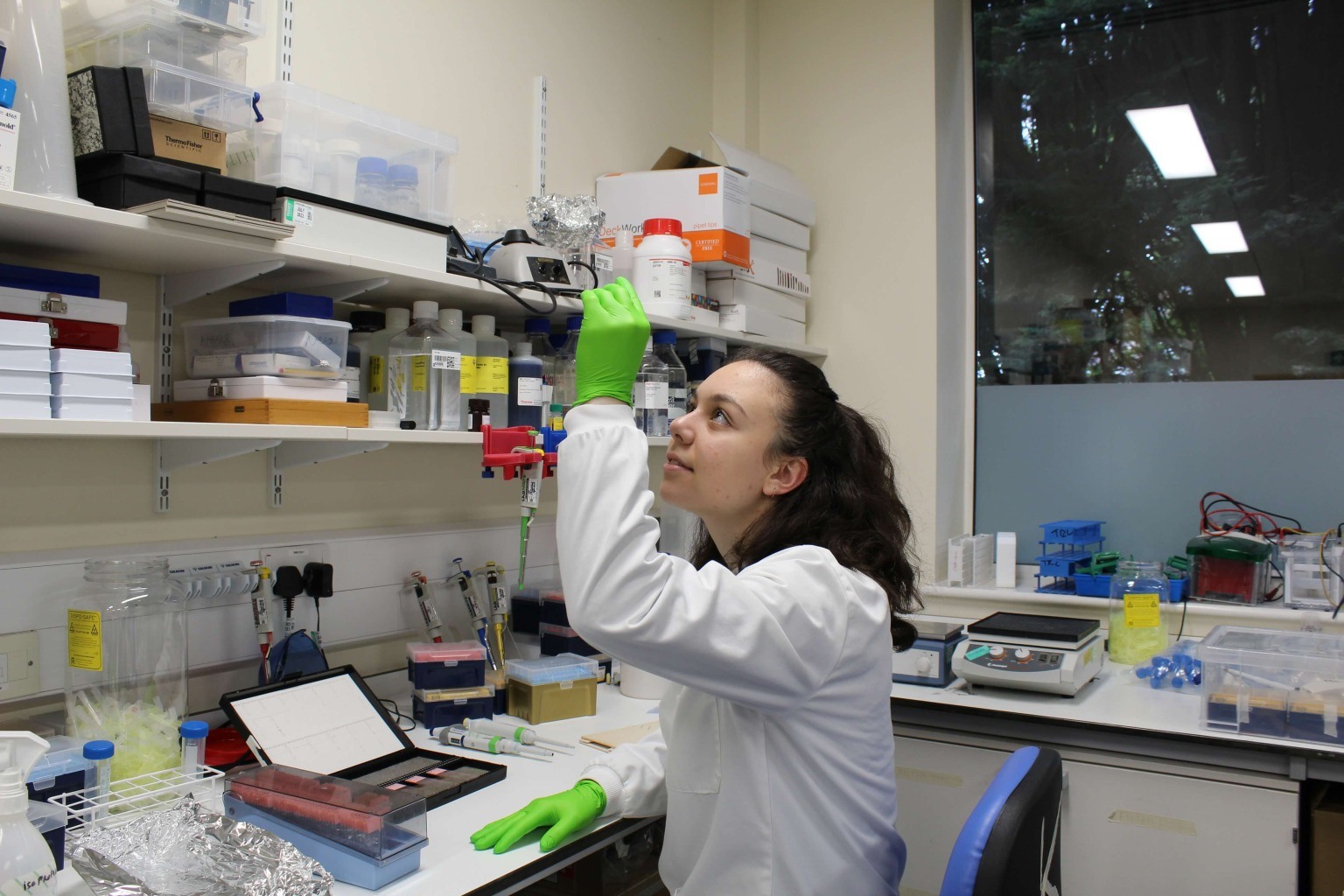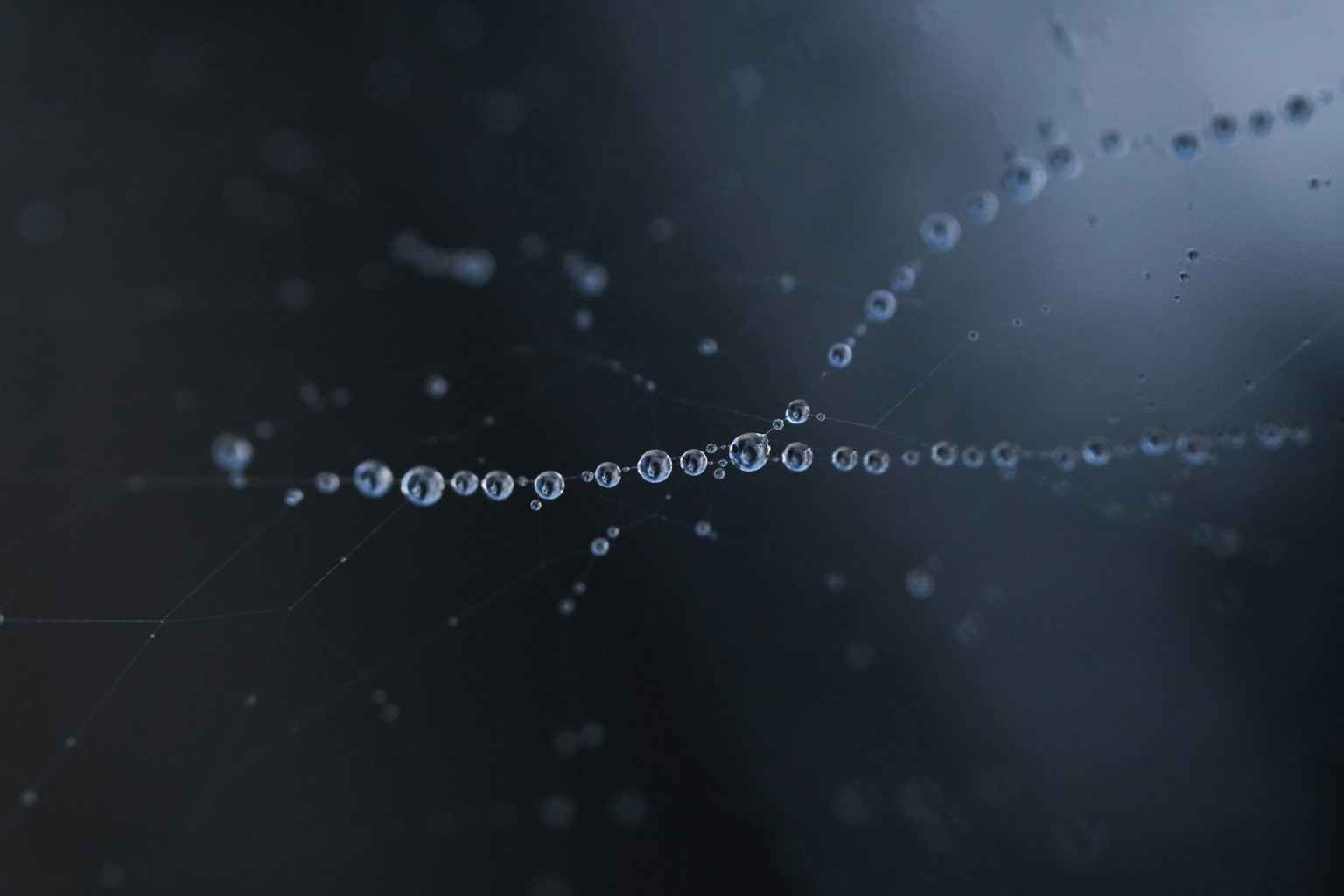
Exploring the invisible: Dr. Ariadni Boziki simulates the molecular world
Chrysovalantou Kalaitzidou
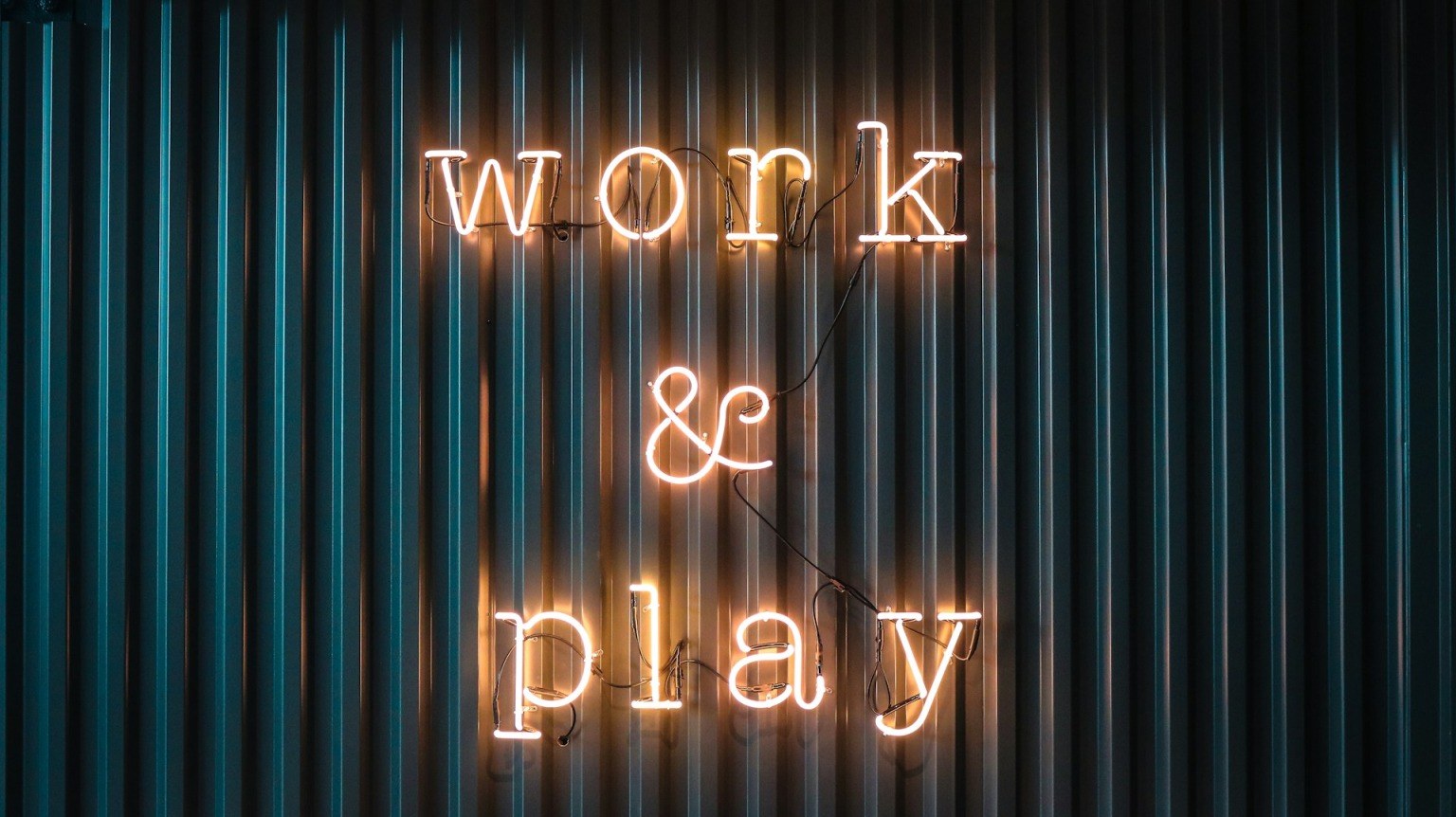
Magazine / Interviews , Mentoring , Science
Her love for biology began when she was still a high school student. Thus, she decided to study Molecular and Cellular Biology at the University of Kent, UK. She then obtained two master's degrees (Biochemistry, Medical Microbiology) and a Ph.D. in Cardiovascular Sciences at King’s College of London, UK. She received many prestigious awards for her research work on therapy and prevention of cancer that aim to improve the quality of life of cancer patients. Marianna gave an interview to Greek Women in STEM about science and life in general so that we get to know her better!
Could you please give us a brief description of your current job?
My work focuses on personalized oncological and regenerative research and its translation into innovative solutions for improving the quality of life of cancer patients. For many years, I was a research associate at the Cyprus University of Technology and active in the main Oncology Centers of the island. I am now a co-founder of three biotechnological companies based in Limassol. At Theramir Ltd, we develop next-generation personalized cancer therapeutics and diagnostic platforms based on nanotechnology and microRNAs. At Promed Bioscience Ltd, we innovate in the field of medical biomaterials with 3D-atelocollagen for medical applications, synthesis of 3D-artificial organs, and tissues. Lastly, at RSL Revolutionary Labs Ltd, we are developing a new class of innovative dermaceuticals for the relief and healing of skin side effects in oncological patients after anti-cancer treatments.
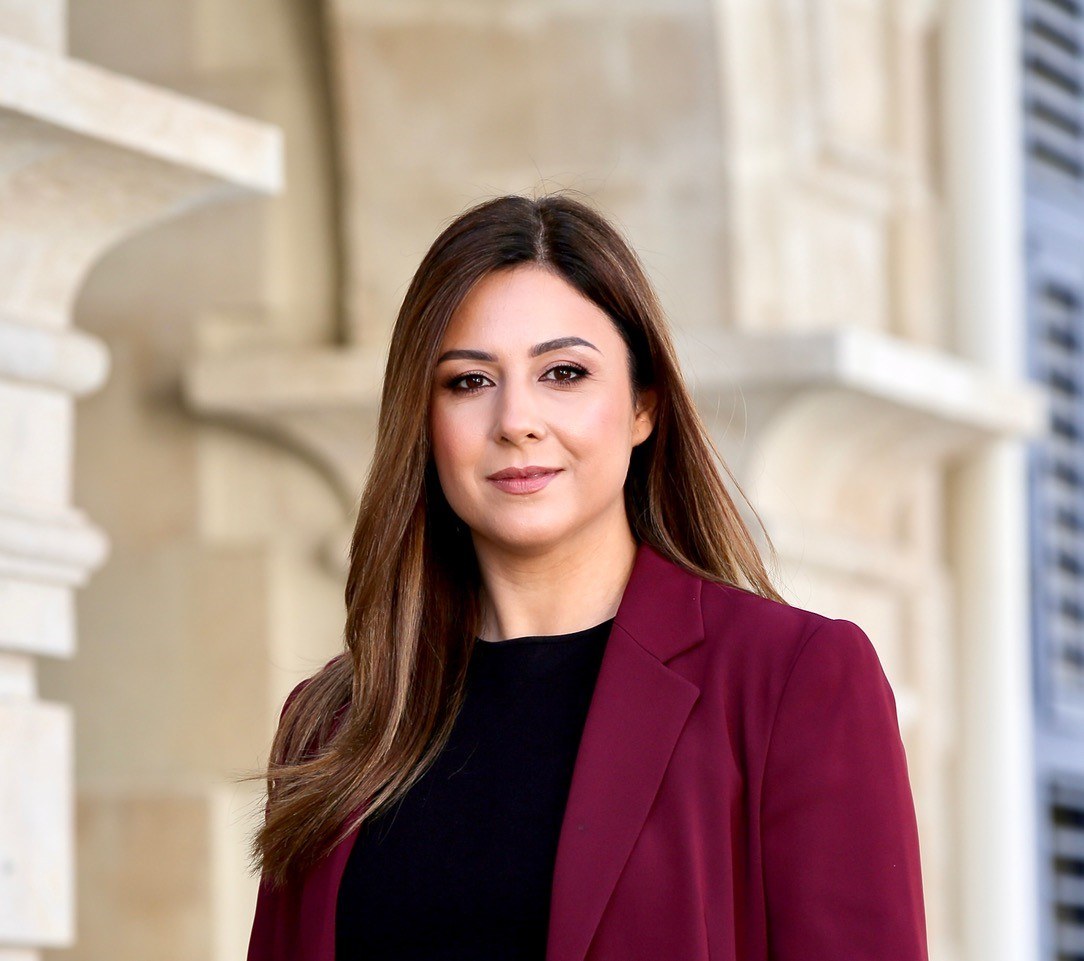
Your love for research is undisputable, based on your CV and career-related actions. Why have you decided to be involved in the entrepreneurship sector?
Fortunately, I have not moved away from the lab-work completely, it still remains my great love. But certainly, my working hours in the lab have decreased considerably. As you grow and mature, you realize that you are more useful in providing mentoring and guidance, so you consciously move towards that direction. Securing funding, developing novel ideas, and mentoring require in-depth knowledge and experience, which one acquires after many years in the laboratory. Actively engaging in entrepreneurship has kept my drive for discovering new things alive, despite the risks involved, because it enables me to realize my ideas into clinical applications with a direct impact on society. The importance of contributing to the scientific community by enhancing knowledge is significant, but I have always felt the need to create and convert my ideas into tangible products that reach the market and the patients. This feeling is unique. Innovative and progressive entrepreneurship allows the researcher to get close to the patient. Research creates the basis for knowledge while entrepreneurship promotes it to the market, and the combination of the two will create the product that will help a patient’s life.
How did past experiences shape your professionalism?
My professional life started very early, mainly to secure a means of living while studying in the UK. I had to take on multiple customer service roles while working in coffee shops and supermarkets, which not only enhanced my communication skills but also helped me acquire basic marketing and accounting knowledge. After completing my PhD, I worked for a year at the Department of Quality Control of Remedica Ltd Pharmaceuticals, gaining experience on procedures required to assure that completed pharmaceutical products meet international standards and GMP regulations. Most importantly, having members of my own family diagnosed with cancer and losing the battle made me understand their needs and helped me identify what was missing from the market. That is why our research ideas have been so patient-need focused, so they could be of the most benefit to them. Even though at that time these skills seemed irrelevant to my field of studies, and I could not realize their importance, professional and personal experiences are invaluable.
Describe a typical workday.
I do not have typical workdays, as with numerous demanding responsibilities, there are no standard working hours, and every day is different. After dropping my kids off at school in the morning, my agenda includes online meetings with colleagues from all over the world, lab time, visiting and overseeing the construction work of our new factory, supervision of our sales and marketing department, as well as promoting our work to investors and customers. Despite the lack of a work routine, though, I always make sure to spend quality time with my family. Three times a week, we have lunch together because I think it is important for the children to know that I am there whenever they need me. I don't want them to be deprived of my presence and vice versa; that's why I dedicate my weekends entirely to my family, away from professional obligations.
For me, balance means being present in the moment. Whether I am at work or spending time with my family, I try to be fully focused on where I am. It is very difficult to juggle the many roles in our lives (woman, scientist, mother, wife), but it can be done once we try to make the most of each one and enjoy it to the fullest.
During your career, were there any time periods that you felt overwhelmed? If yes, how did you handle it?
There will always be challenging times. I had to work while studying for my degree, sacrificing free time for rest and fun with friends as well as valuable time for studying. During my PhD, I used to work very long hours, and when I had the chance to sleep, my laptop was still on so that I wouldn’t miss a moment of work. When I moved to Cyprus and co-founded the biotechnology companies with my invaluable partner, Dr. Costas Pitsillides, we had to work without an income for many years and do a lot of different jobs due to market conditions at the time and because of the ongoing economic crisis. Undoubtedly, though, hard times have turned us into a family, and we are very proud of how far we have come. The moral satisfaction when a patient says “thank you” cannot be compared with any profit. What kept me going was the feeling that all would work out in the end, having a clear plan of where I wanted to go and the right people beside me. Over time, I have realized that such a lifestyle is not only unhealthy but also unattainable. We should strive for work-life balance and look after our mental health so that we can be present for life moments we would regret losing.
How do you determine work-life balance?
For me, balance means being present in the moment. Whether I am at work or spending time with my family, I try to be fully focused on where I am. It is very difficult to juggle the many roles in our lives (woman, scientist, mother, wife), but it can be done once we try to make the most of each one and enjoy it to the fullest. Making small changes in my life, such as not replying to emails when I am on holiday or setting my phone aside when I am with my family, has helped me keep things more balanced. Losing my mother, father, and sister at a young age has taught me how short life can be and reminded me to make the most of it while we still have time. I keep reminding my team as well. I personally think that the Covid-19 pandemic helped revise our way of thinking regarding work-life balance. This is because we learned that we can achieve efficiency and efficacy when there is flexibility and a well-organized schedule.
How important do you think is the role of the environment you live in order to maintain a work-life balance?
Maintaining a work-life balance requires us to be mentally and physically healthy ourselves. The environment we live and work in impacts this significantly. Having lived in robust cities like Athens and London for a big part of my life has helped me appreciate the benefits of living in Cyprus even more. A stroll to the beach to clear your mind on a stressful day or a visit to the mountains is never too far. It also provides a safe place to raise your family. Business-wise, Cyprus attracts many international companies and investors, exposing us to different cultures and mindsets. When I moved to Cyprus with my husband, I invested in my personal life, and I have no regrets. If the environment you live in is good for you, then with that and hard work, you can achieve anything.
What do you enjoy doing most in your free time? Do you have any hobbies or other interests?
After recently turning 40, I decided to explore a hobby I was interested in since school years but never seemed to have the time for. I am very enthusiastic about astronomy and astrophotography, both science-related hobbies that make me happy so I try to incorporate them in my daily life as much as possible. I even organize excursions around the island with my family to observe the stars with our telescopes!
Biology aims to improve the quality of people’s lives. Maintaining a work-life balance is key in improving physical and mental health, which are equally important. Based on your opinion as a successful woman scientist in a leadership role, what changes (big or small) are needed to improve this part of STEM culture?
Working in STEM is demanding and challenging, especially for women scientists. This is mainly because a scientist needs to study for almost a decade, counting undergraduate to PhD studies, to claim a leadership position in both Academia and Industry. Thus, it is difficult to compare with people in another industry at the same age when they will have at least 5 years of work experience behind them. Unfortunately, research shows that a woman’s credibility is undermined because of her gender (44%), that women in STEM professions are being held back from becoming industry leaders (53%) and more than half (57%) agrees on the pay gap between male and female workers in STEM industry[1]. Biology, and the STEM fields in general, need dedication in order to build a stronger and brighter future. The state and community must encourage and nurture the diversity that women have to offer, promote their participation, and support scientists. Changes in social perception need to take place in order to finally overcome inequalities.
You can find Dr. Marianna Prokopi - Demetriades on LinkedIn.
Sources:
[1] FeSTEM Survey [Female Empowerment in Science, Technology, Engineering and Mathematics in Higher Education]

Chrysovalantou Kalaitzidou

Thaleia-Dimitra Doudali
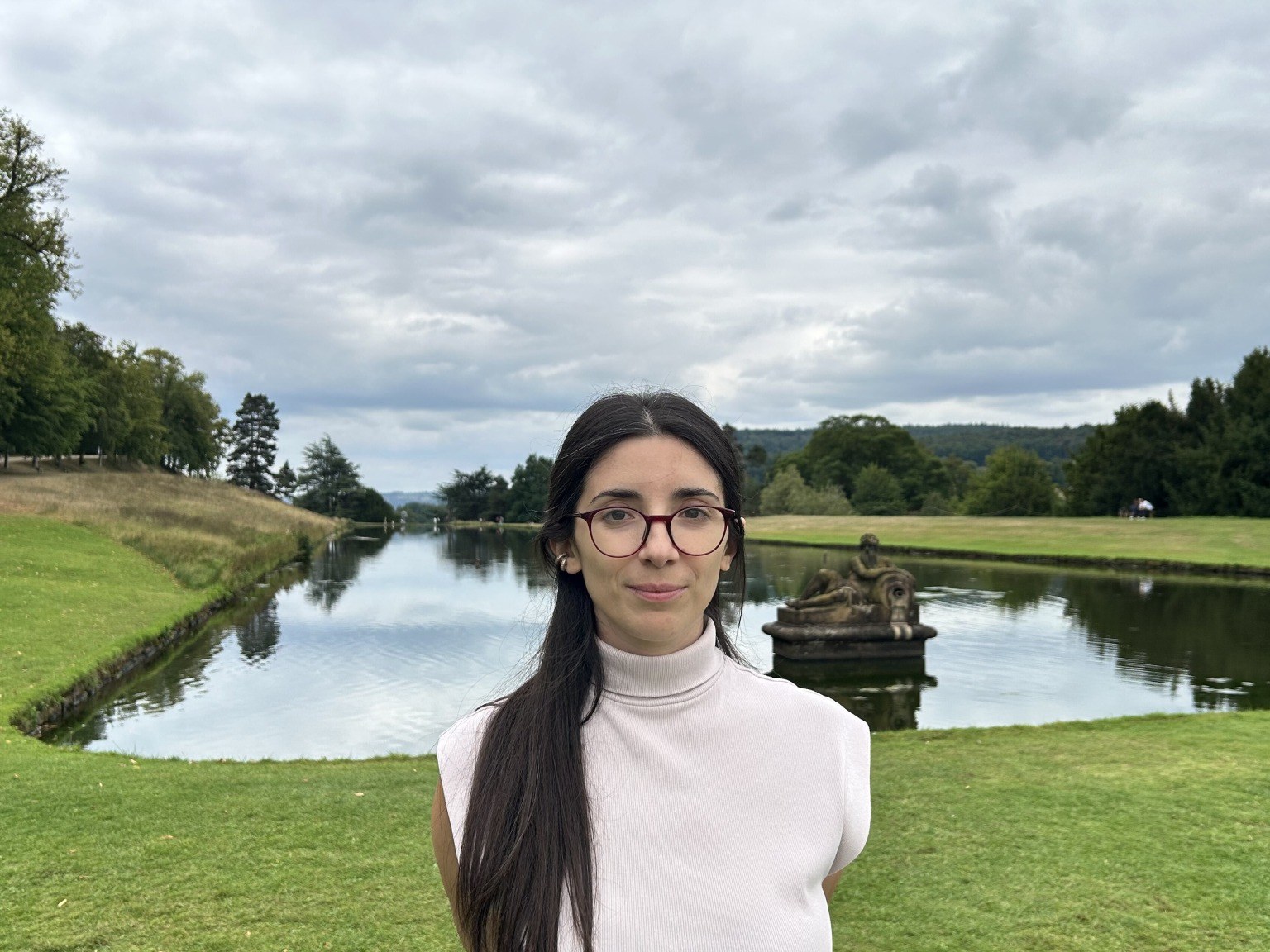
Danai Korre
